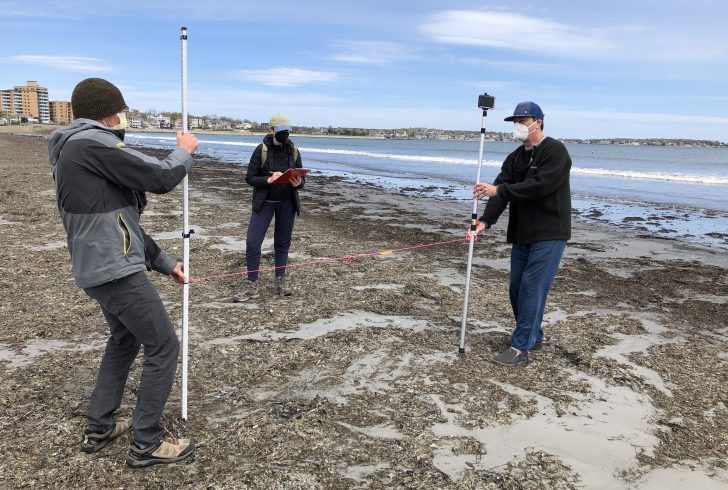Beach Profiling Highlighted at Coastal Sediments 2023 Conference


As part of the outreach and education initiatives at the Stone Living Lab, University of Massachusetts Boston and SLL staff launched a citizen/community science program in 2021, providing members of the public the opportunity to get involved in scientific research.
The first project ran from April – December of 2021 and was focused on beach profiling, complementing Dr. Mark Borrelli’s research on island sedimentation, sea level rise, and coastal resiliency research efforts on the Boston Harbor Islands. Results from this project have been selected to be presented at the 2023 Coastal Sediments conference in New Orleans, Louisiana next April. This conference highlights work being done to further the resilience of coastal communities worldwide through scientific research and engineering efforts.
For the beach profiling project, volunteers were trained to use the Emery method to track monthly elevation change at twelve different beach sites around Boston Harbor. This method was developed in the 1970s by oceanographer K.O. Emery, and remains a low-cost but effective and reliable way to measure beach profiles. This yearlong project showed that trained community members can successfully use the Emery method to accurately measure beach profiles at multiple sites. It also generated data that can be used to delineate wave energy levels of beach sites, characterize seasonal trends, and assess individual storm impacts. Stone Living Lab core researchers now have access to a growing library of shoreline data and are connected to a network of community members interested in the future of our shorelines.
Dr. Borrelli will also be presenting at the conference on his work mapping Boston Harbor using boats and drones, both above and below the water.
Read more about the Lab’s research initiatives and how to get involved here!